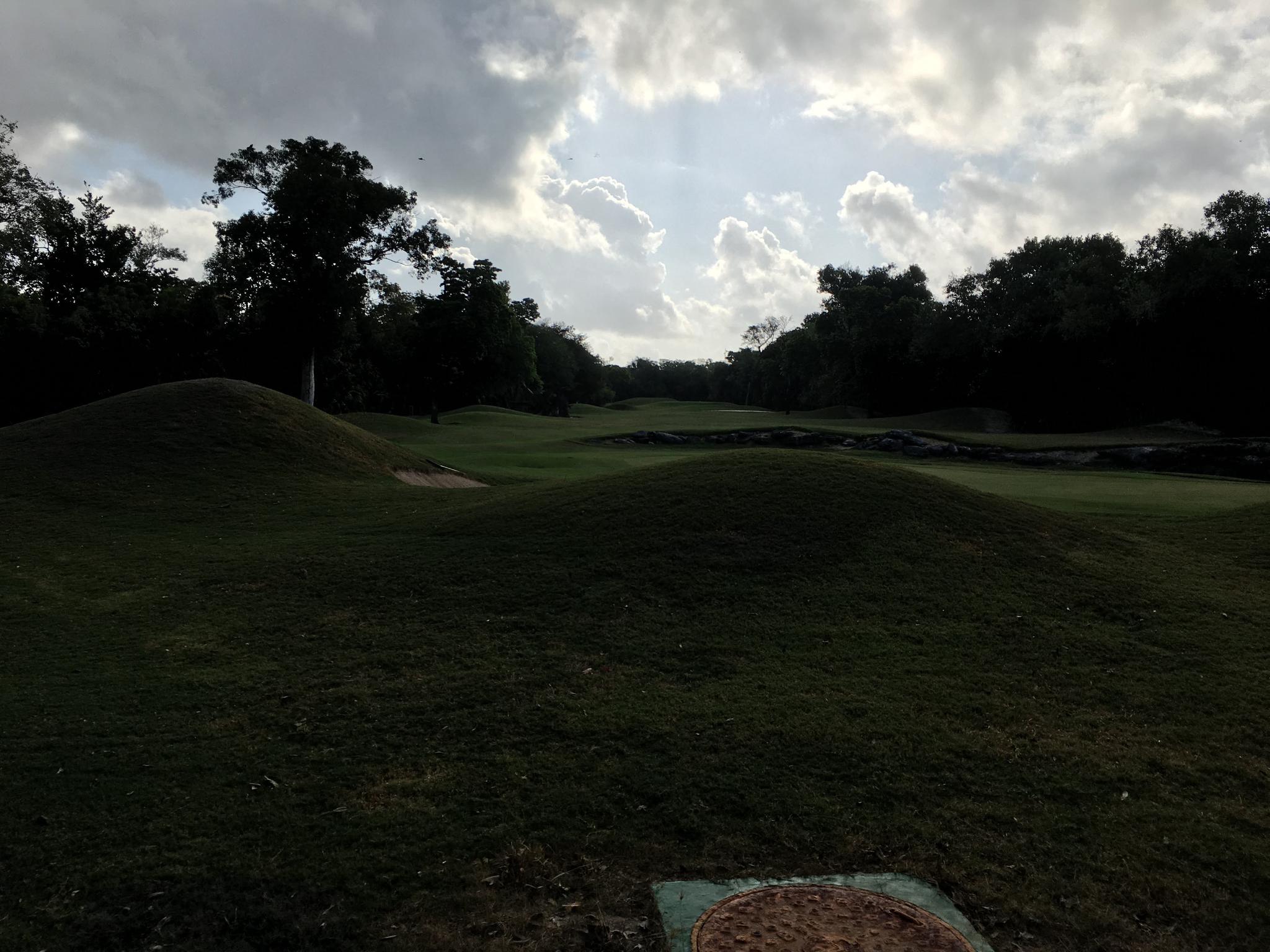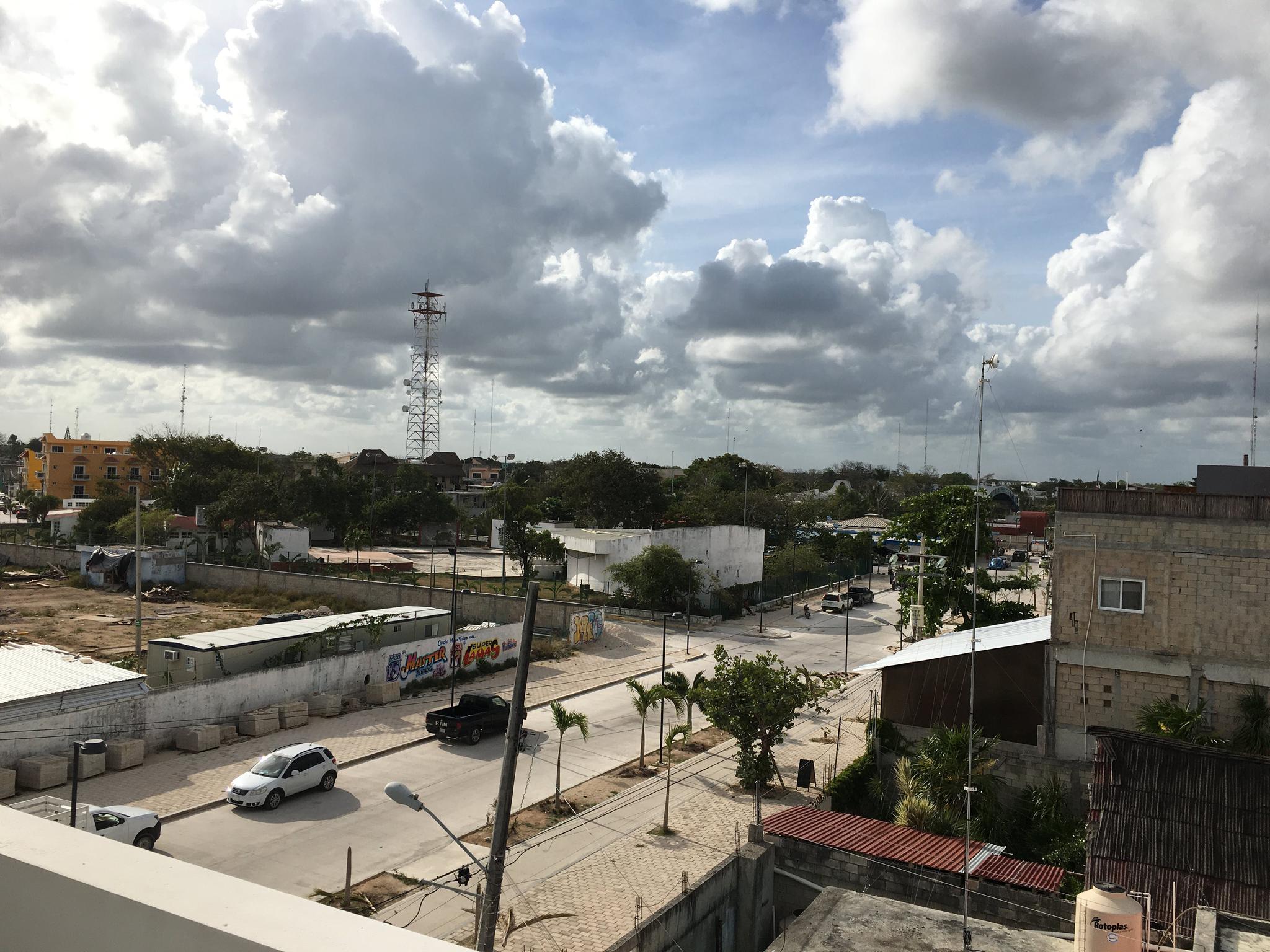I am in Mexico?
A trip between multiple worlds in Mexico lays bare society's contrasts
Quintana Roo, Mexico
April 2022
We attempt to walk from our previous night’s hotel to our new hotel, a fifteen minute straight shot as indicated by Google Maps. Five minutes in, we arrive at a gate. We explain to the security guard that we are walking to our new hotel but he says that only guests are allowed in the complex. I tell him we are going to be guests – it appears that our new hotel is inside this complex – but the gatekeeper will not back down.
Conveniently, taxis can enter and leave the complex as they please. We quickly find a taxi and pay six U.S. dollars for a quick three minute drive from the gate entrance to our hotel. On the quick drive to our hotel, we quickly realize this is a new and different world from outside the gate. We pass perfectly manicured lawns, big, well-kept houses, a golf course, a fancy shopping mall and numerous resorts. It has an adult Disney World-type feel.
We enter our all-inclusive resort hotel, check in, and must meet with the concierge to set up dinner reservations. The fact we must meet with the concierge – a real human with a real salary – instead of using an online reservation system at first baffles me. It soon becomes apparent why the resort has not automated the reservation service.
“Ok, as I make your reservations, I would like to inform you of an opportunity for a free upgrade to the child-free rooms. You are currently in the family section, and let me assure you, given you have no kids, you will surely prefer to be in the adults-only section. To get this free upgrade, you just have to attend a 90 minute session on membership in our resort system…”
“It’s ok, we are good,” I reply. “Are you showing the page with the reservations yet?”
“Oh, but it’s only 90 minutes, and I do guarantee the kids will annoy you.”
“Reservations?”
“Ok, the French restaurant has seats free at 8 today, the Asian restaurant has tomorrow at 6:30, and the Italian one at 8 tomorrow.”
We are neither in France, Asia nor Italy but we make our reservations before the concierge can ask us again about the 90 minute presentation. Indeed, the concierge goes by Charlie, further shaking my perception of place. Most guests are speaking in English, save a few Argentines. If our drive through the gated community of adult Disney World did not shatter my illusion that we are in Mexico, it is now. I double check the Mexico entry stamp in my passport to confirm that yes, we are in Mexico.

The night-time entertainment also belies any illusion of being in Mexico. The largely English speaking crowds watch bands sing covers of Abba, Michael Jackson and other international, Western artists.
Still unsure of where I am, the first morning during breakfast I talk to our servers to confirm that they are, in fact, Mexican and we are in Mexico. I ask them about the pandemic.
“It was very hard. We had no work for a few months. The resort just shut down. There was no payment from the resort or from the government. It was really difficult.”
In the United States, many residents received some form of expanded government support whether through unemployment assistance or cash payments. In Mexico and many other Latin American nations, however, governments did not (or felt they could not, due to concerns about foreign debt) offer protection for the unemployed.
The good news, however, is the resort is running at near full capacity as of April 2022. Masks are still officially required in the resorts’ indoor spaces, but even this rule is loosely enforced. The pandemic appears over at this resort.
The pandemic laid bare how dependent much of Mexico and other Latin American nations are the flow of capital from other nations. Tourism is a major industry in much of Mexico, Ecuador, Colombia, Peru and other nations in the region. A Colombian friend who works as a tourist guide on Colombia’s Caribbean coast said that it took until the second half of 2022 for pre-pandemic tourist numbers to recover. At the same time, the number of unemployed ballooned as a result of the pandemic. The competition for a limited number of tourists amongst a growing and increasingly desperate crowd of tourist guides pushed my friend to the brink and nearly forced him to emigrate.
(In addition to tourism, many Latin American nations depend heavily on commodity exports, hit especially hard at the beginning of the pandemic – but which have now generally recovered. Latin American nations and their people are thus at the mercy of external events with little room to maneuver and mitigate the effects of these downturns.)
I get more hints that we are indeed in Mexico as I look at the racial makeup of the hotel workers. The front desk workers, concierges, and managers were without exception a lighter skin tone while the cleaning staff and restaurant servers were universally much darker skinned. The resort hierarchy follows Mexican society’s entrenched socio-economic racial hierarchy where those with more wealth are far more likely to be lighter skinned.

Every morning, I leave the resort for a run. I pass by the golf course and luxurious homes we saw on our brief taxi ride. Although my first impression of this gated resort area is that it is not Mexican, I begin to realize that it is, unfortunately, more Mexican than I would like to admit. More and more Mexicans – and not just the wealthy, but the middle class – are living in gated communities, walled off from an increasingly dangerous country. An increasing number of those with economic means frequent American style shopping malls for their needs. And, just like inside the resort itself, those doing the physically demanding work in the gated community – golf course and roadside maintenance – were all much darker while the golfers and owners of the homes were quite white.
Perhaps my own assumptions of what is Mexico need a reworking. Mexico is glitzy resorts, security guards, Starbucks, foreign restaurants and golf courses as much as it is home to the most warm, non-pretentious and welcoming people in the world many of whom also, sadly, live in poverty. And the Mexico of the glitz is dependent on those from the non-glitzy neighborhoods to clean, maintain and cook. The service workers are allowed into the glitzy world for their shifts and quickly set back where they came from on resort buses (no public transport allowed in the gates). The flow of people is not reciprocal. Those living in the glitz have no reason to leave their bubble.
Mexico, like many other societies in the world, operates within an open, legal caste-structure. Those working within it are no doubt happy for the work as Covid laid bare what a world without the work looks like. Those benefiting from the system have no reason to change. For better or worse, the system continues.
After a few days at the all-inclusive resort hotel, we exit the gates to the other Mexico. We eat street tacos, take cramped buses, and wander through dusty streets without gates. People smile and not just because they want to sell you a membership. This Mexico moves, pulses and sprawls organically. The traffic, sounds, dust, and unpredictability add an extra level of stimulation but I notice I am more alert and less relaxed. If stimulation and adventure are your thing, stay outside the gates. If predictability and carbon copies are your jam, stay inside the gates. Perhaps a little of both can make for an ideal vacation as one can know the multiple sides of Mexico.

